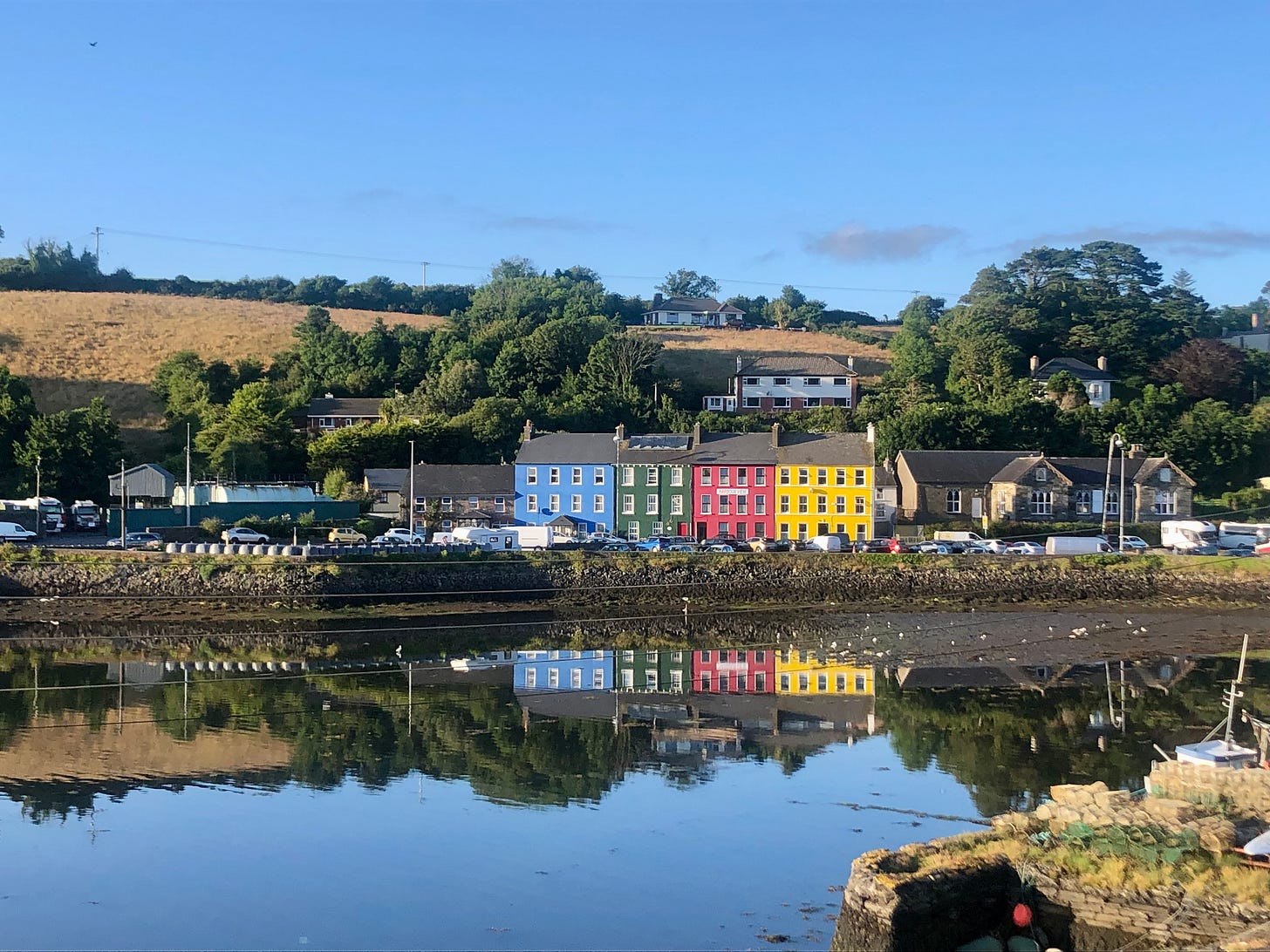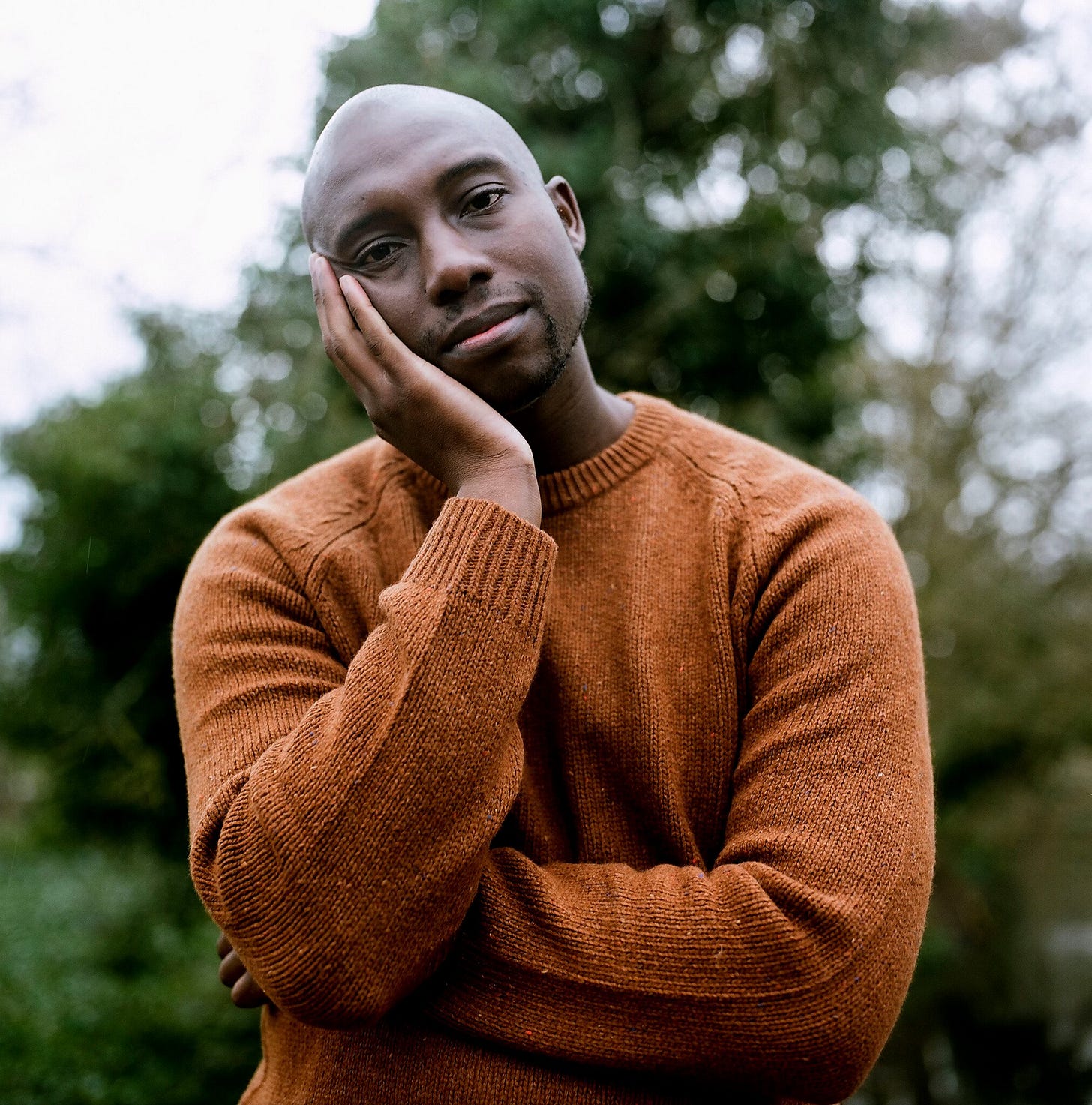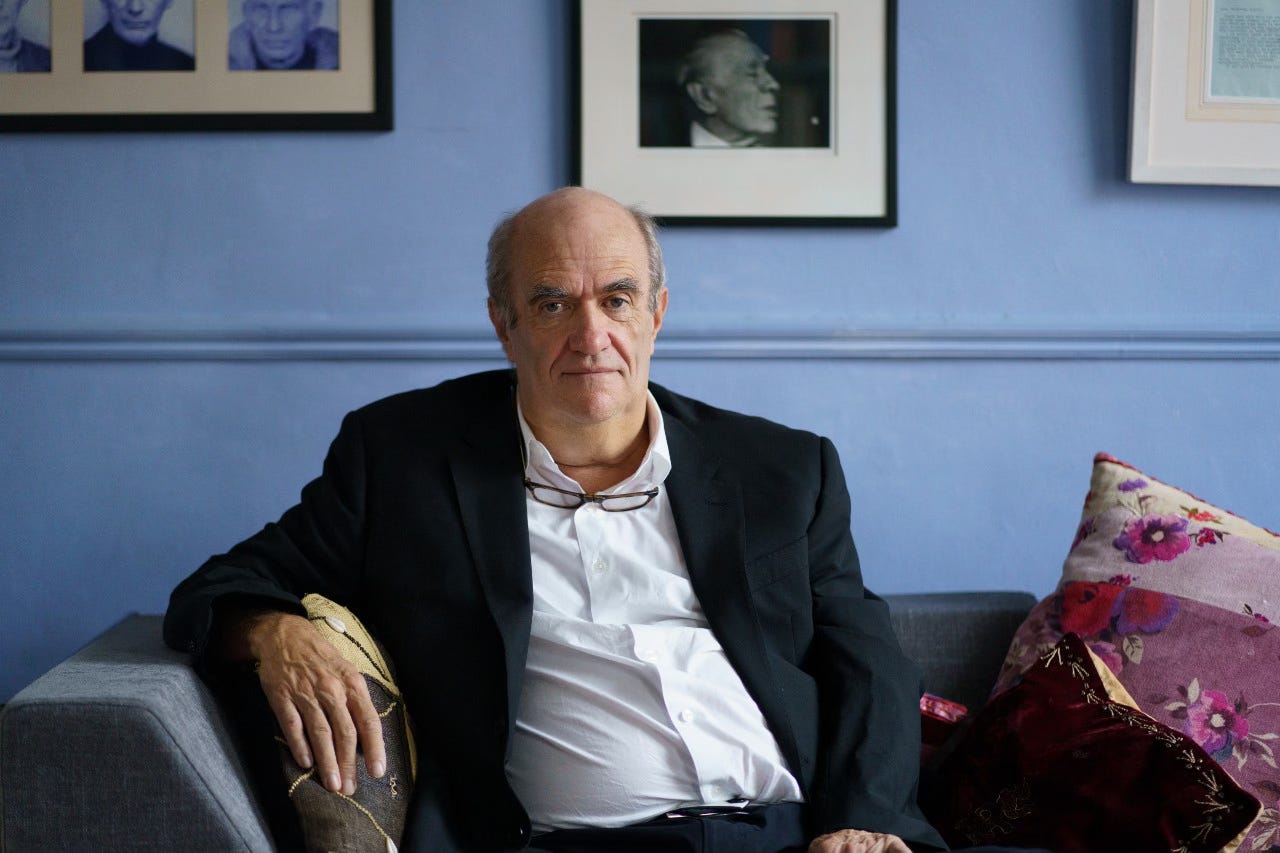REVIEW: The West Cork Literary Festival with Colm Tobin, Caleb Azumah Nelson and Cathy Sweeney.
The Festival brings the world's most celebrated and successful writers to a small town on the edge of Europe.

The JasonWard Creative Substack is for readers like you. I really appreciate your time spent here and invite you to support my work by taking out a subscription. A paid subscription gives you access to exclusive content plus the entire archive of over 100 articles, reviews, interviews, podcasts and playlists full of creative insight and observations. Sometimes there is humour as well! Thanks for reading!
The N71 is a road that loops across West Cork from the City to the sea. The road drops down South through places called Pedlar’s Cross, Bandon and Clonakity. After Skibbereen it runs along the river opposite the world famous Skibbereen Rowing Club home to Olympic champions. When the road enters Bantry it descends through fields of livestock, enters a tree lined tunnel and arrives at sea level in front of the sea. A flashing red sign at the side of the road tells you ‘Go Mall’ which is not Irish for take me shopping but ‘Go Slow’.
To your left is Whiddy Island, the mountains of the Beara Peninsula and the Atlantic Ocean. If you head West, your next stop is Newfoundland.
Bantry is a small town with a population of less than 3,000. If stand in the middle of Wolfe Tone Square you have the see one side and green hills patchwork with fields the other. On Friday there is a market selling everything from food to hi-vis clothing and at the end of the pier where the railway station used to stand there is now a supermarket.
Every year this small town hosts the West Cork Literary Festival. Director Eimear O’Herlihy leads a small dedicated team of paid staff and a huge group of local volunteers who are incredibly friendly, helpful and knowledgeable.
This may look like a small town offering but the Festival brings together writers that have made a mark on our lives and our culture: Irvine Welsh (Trainspotting), David Nicholls (One Day), Paul Lynch (Prophet Song), Miriam Gargoyles, MAN Booker Prize Winner Anne Enright and the legendary Colm Toibin.
And all of this right where the N71 road slows right down to meet the Atlantic Ocean and is funnelled through Wolfe Tone Square before sneaking through a tight gap in the buildings before snaking off to Glengariff.
Being in the room with writers talking about their writing is inspiring. Every event I went to was either sold out or close to and at the event with Colm Tóibín there were over 300 people or over 10% of Bantry’s entire population all sat together in the ballroom of the Maritime Hotel. This is the equivalent of 22,000 people at an event in Cork City or over 900,000 in London- and that only happens for Taylor Swift! The Festival has captured an audience of literary fans who turn up to events having read the books, having discussed them and with a desire to listen, learn and be inspired.
Incidentally, thanks to the Festival, I discovered that the first floor ballroom balcony is a wonderful location from which to capture the beauty of Bantry as the sun lowers into golden hour.
My Festival experience started in the packed Old Methodist Marino church to hear from Caleb Azumah Nelson, a young award winning London based writer whose first person narrative writing style perfectly fit the small, crowded and intimate venue. Azumah Nelson read from his second book, Small Worlds, quietly, with a rhythm that is intrinsic to the work with its close relationship to music. It is interesting that music influences his writing so much because the two art forms are diametrically opposed in how we enjoy them: the musician needs to physically perform their work in order for it to be enjoyed whereas the writer is almost passive in the interaction we have with their books.
But here in a former place of worship in a small market town on the Western edge of Europe, Azumah’s reading transported us to the heat, noise and intensity of summer in South London. With words, written and spoken, Azumah Nelson illuminated the feelings of being simultaneously one thing and another - in his case a Londoner and a Ghanaian as well as a working class boy who won a scholarship to study at a private school. It is a sensation shared by many of us who have our feet in two different places which can be at once unsettling and a source of strength.
Irish writers Cathy Sweeney and Sinéad Gleeson shared the stage at Bantry’s Maritime Hotel with host, fellow author, the Booker nominated Colin Barrett. The space is more expansive than the Marino Church and feels grander with its wooden dance floor, chandeliers and heavy curtains. The setting stands in contrast to Sweeney’s debut novel, Breakdown, which again is a first person narrative but told from the perspective of a married woman and mother in Dublin who decides one morning to just drive away from her family. Sweeney’s reading of part of her book gave extra layers of emotion and understanding to her work. Breakdown really is a wonderful book (see my review HERE) and listening to Sweeney discuss it made me dip back into it and draw more from it.
As well as the literary there was the personal and Sweeney talked about how writing a full length novel had taught her to believe in her own creative process rather than trying to hit preconceived marks and measures. This will be familiar to many of us who are creating work in whatever field: there is always the pre-conceived notions, the ‘ways of doing’ and the podcasts that tell us the six things we need to do in order to achieve success in our chosen art form. Interestingly, Breakdown speaks to this subject as its protagonist chooses not to what is ‘right’ but rather what is right for her
.
The biggest of the big names this year was Irish writer Colm Toibin who has published 11 bestsellers including Brooklyn which was adapted by Nick Hornby into a beautiful movie starring Saoirse Ronan. Toibin was here to talk about his latest novel, Long Island, which is a sequel to Brooklyn (despite Toibin claiming he dislikes sequels). Host Sinéad Gleeson was incisive with her questions with an understanding of what the audience wanted the writer to tell us.
This was one of the events with an audience of over 300 people and 80% of the crowd appeared to be carrying a copy of the orange covered Long Island for signing.
What is interesting about Long Island and the way Toibin talks about it is that we all felt we knew Eilis Lacey and we had all developed our hopes for her future after Brooklyn. And it appears over the intervening years between finishing Brooklyn and writing Long Island, that the writer has also considered what Ellis’s life with Tony would be like. We wanted to ask him why he had let something bad happen to her but Toibin was ahead of the game, explaining almost like a doting father, why he had made Eilis live through this particular drama - you might be able to tell that I am trying extremely hard to avoid spoilers here!
There was theatre in Toibin’s reading of Long Island as he became the people that he writes about and knows so well. Toibin gave us a sense of Under Milk Wood in the tone of the small town characters with complex lives and desires. Although when I asked him about stage adaptations of his work he said that he was not overly interested in pursuing that medium.
When we watch a movie and then read the book the characters’ appearances become defined and, in a similar way, when he reads his work Toibin’s becomes the voice that we are searching to hear when we then read his books. Was he onstage for an hour or did he speak for fifteen minutes? We don’t know because the time spent in his world passes at a different speed to time outside. But surely this is how enjoying books should be: something to transport us from the every day.
We need to take notice of the West Cork Literary Festival every year and never allow it to become the mundane or a square on the calendar that we mark off on our journey through the year. The Festival is important to the town and area of Bantry from a tourism and commercial perspective despite not being promoted as a commercial tourist event. It has a greater importance and power based on bringing a world of creativity and art that inspires and changes lives.
Find out more about the West Cork Literary Festival HERE
I really appreciate your time spent reading my Substack and would love you to support my work by taking out a subscription. A paid subscription gives you access to exclusive content plus the entire archive of over 100 articles, reviews, interviews, podcasts and playlists full of creative insight and observations AND helps me continue to write. Thanks for reading!






